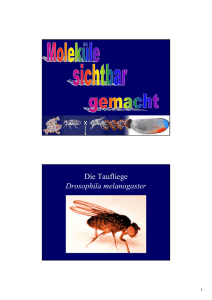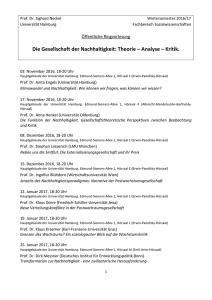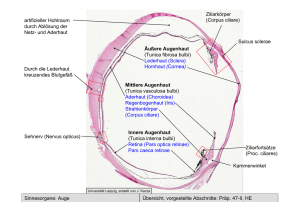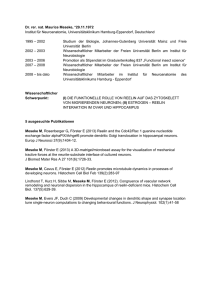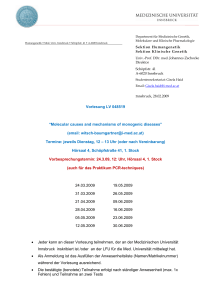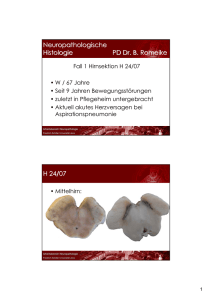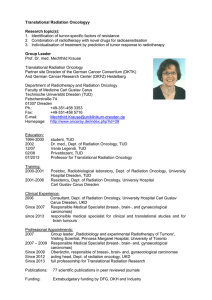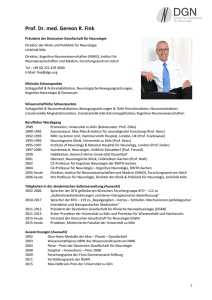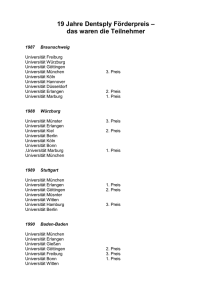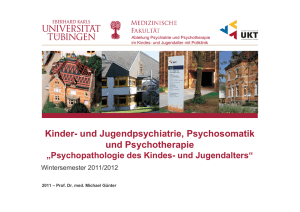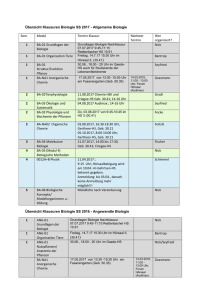Cyclin G is involved in meiotic checkpoint control in Drosophila
Werbung
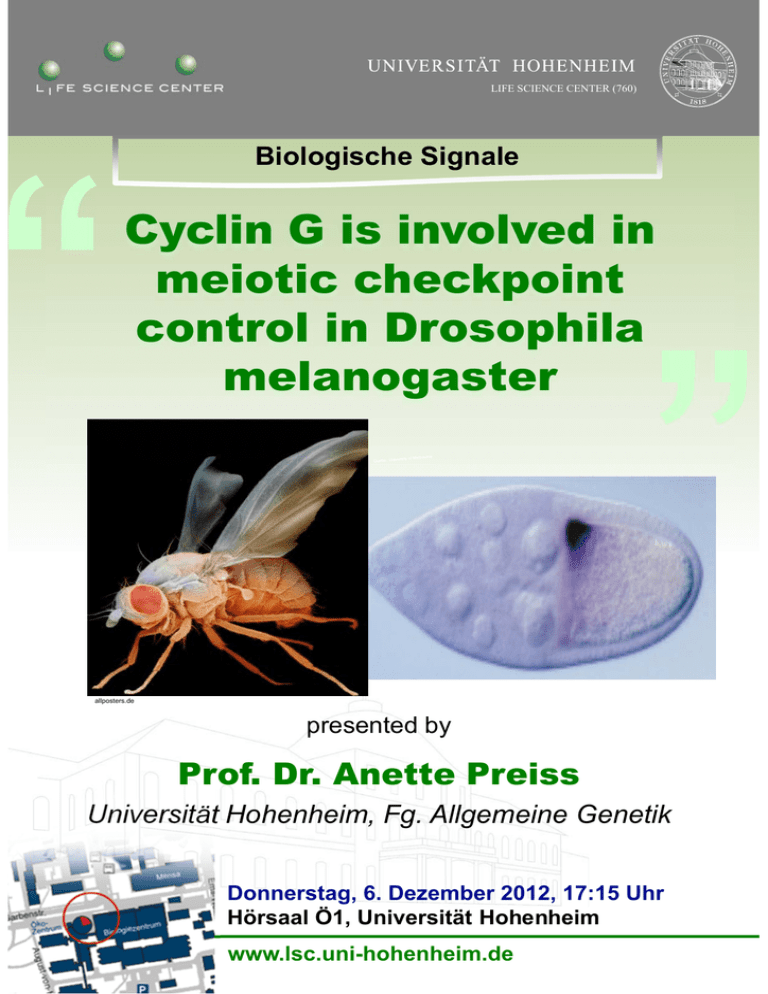
LIFE SCIENCE CENTER (760) Biologische Signale Cyclin G is involved in meiotic checkpoint control in Drosophila melanogaster allposters.de presented by Prof. Dr. Anette Preiss Universität Hohenheim, Fg. Allgemeine Genetik Donnerstag, 6. Dezember 2012, 17:15 Uhr Hörsaal Ö1, Universität Hohenheim www.lsc.uni-hohenheim.de LIFE SCIENCE CENTER (760) Biologische Signale “Cyclin G is involved in meiotic checkpoint control in Drosophila melanogaster” Prof. Dr. Anette Preiss Universität Hohenheim Fg. Allgemeine Genetik In general, cyclins control the cell cycle. Not so the atypical cyclins, which are required for diverse cellular functions such as for genome stability or for the regulation of transcription and translation. The scientists are studying the atypical Cyclin G (CycG) gene of Drosophila. The two mammalian CycG genes, CycG1 and CycG2, regulate the cell cycle in response to cell stress, yet with apparently opposite effects. In order to analyse the role of the single Drosophila CycG gene, they generated a null mutant by homologous recombination. The mutant flies are homozygous viable, however, the mutant females are sterile and produce ventralized eggs. This egg phenotype is primarily a consequence of a defective Epidermal Growth Factor Receptor (EGFR) signalling pathway. They find that CycG is required within the oocyte where it is involved in the translation of the EGFR-ligand Grk. Ventralized eggs are also observed in mutants that are defective in meiotic DNA double-strand break repair. Altogether the data indicate a role for CycG in an early step of meiotic recombination repair, thereby affecting EGFR-mediated patterning processes during oogenesis. Donnerstag, 6. Dezember 2012, 17:15 Uhr Hörsaal Ö1, Universität Hohenheim www.lsc.uni-hohenheim.de
